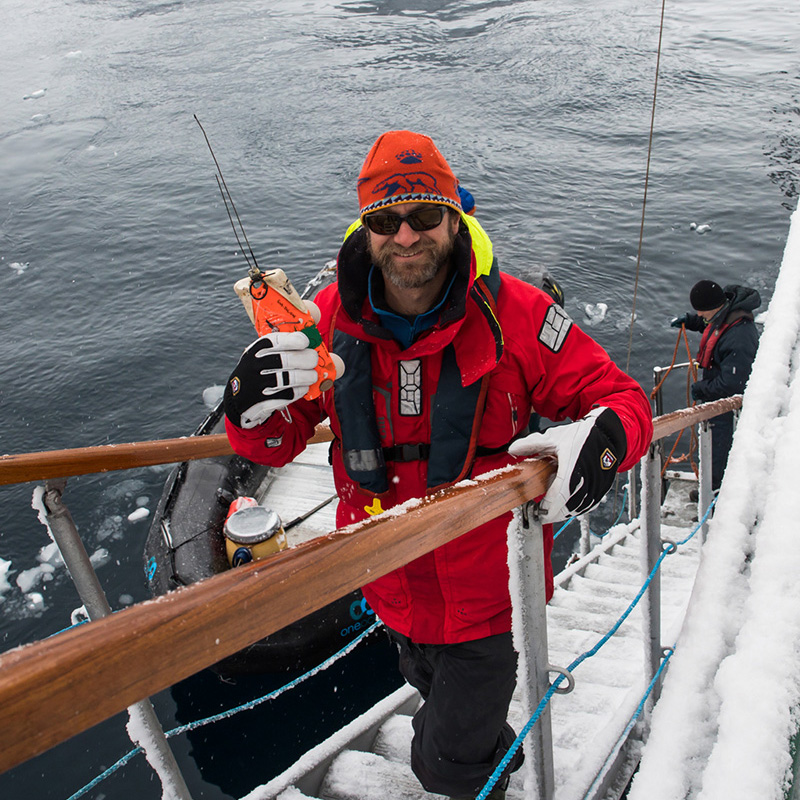Ecological Response and Resilience to "Press-Pulse" Disturbances and a Recent Decadal Reversal in Sea Ice Trends Along the West Antarctic Peninsula
Cetaceans are a critical, yet poorly studied, component of the Antarctic marine ecosystem. During the 20th century over 2 million whales were killed in the Southern Ocean as part of the commercial whaling enterprise. In the context of the long-term ecological research program, we are interested in understanding the life history, population structure, and foraging ecology of these krill predators. Through a combination of visual surveys, photographic identification, skin and blubber biopsy sampling, long-term satellite-linked tagging, and short-term multi-sensor behavioral tagging we will begin to understand the recovery of these ocean giants and their ecological role in a changing environment. In combination with other components of the LTER, we will be able to test specific ecological hypotheses regarding how changes in the physical and biological environment affect the distribution and behavior of baleen whales. Likewise, we will begin to test hypotheses about the potential for interspecific competition with other krill predators (e.g. penguins) throughout the LTER study area.





